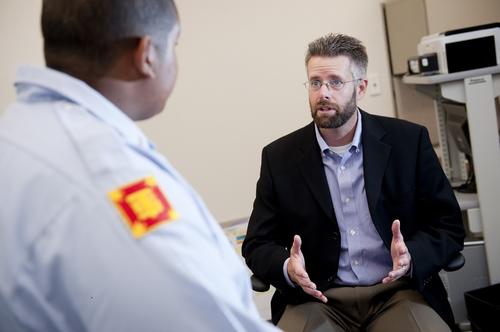
The COVID-19 pandemic has had a huge impact on many facets of society, from the economy to stress on our healthcare system to political discourse.
One effect of the pandemic is rising obesity rates, especially in children. Dr. Aaron Kelly, a professor of pediatrics and expert on childhood obesity at the University of Minnesota Medical School, talks about how obesity rates in children have dramatically increased during the pandemic.
Q: How has the pandemic negatively affected obesity rates in children? Why has it had an impact?
Dr. Kelly: Research studies have shown that body mass index (BMI) levels have increased pretty steeply since the pandemic began. The biggest increase is in kids ages 5-12 years old. About 20 percent of children and adolescents in the United States fit the clinical definition of obesity (a BMI at or above the 95th percentile). It has increased at least a few percentage points, which means that thousands of children across the nation have had their BMI increase during the past couple of years.
It’s likely due to a number of factors. There was a lack of structure in households due to many schools moving to virtual learning. Eating times at home became more variable and access to food became a lot easier for many kids. Lack of physical activity may have played a role, as well. For many children, there was less (or no) access to recess, physical education classes and sports activities. Finally, stress levels went through the roof for many people, including kids. Chronic stress creates conditions for weight gain.
Q: What lifelong effects are associated with obesity in children?
Dr. Kelly: One point that we try to make is that obesity in-and-of itself is a disease. The American Medical Association and other organizations now define obesity in that light. Childhood obesity is ground zero for many other deadly and serious diseases such as early cardiovascular disease, type two diabetes, fatty liver disease and musculoskeletal problems. Obesity is also strongly associated with anxiety, depression and other mental health issues.
Q: Does having obesity as a child impact your health as an adult?
Dr. Kelly: Absolutely. We call it tracking. Obesity tracks strongly from childhood into adulthood. It's not something that you typically grow out of. Studies show that unless something is done intentionally to combat the weight issue, it will continue into adulthood.
Q: What types of research is the U of M Center for Pediatric Obesity Medicine (CPOM) conducting to help fight childhood obesity?
Dr. Kelly: We know that intervening early is key. We have a multipronged approach. We use lifestyle therapy and offer medications; in some with severe obesity we offer bariatric surgery. Lifestyle therapy is the cornerstone of what we do. We offer coaching to help kids make healthy dietary, physical activity and behavior changes. That serves as the foundation of treatment. However, CPOM views obesity from a biological lens, meaning that for some people, the body is hard wired to put on extra weight. It's not as simple as just “trying harder.” It’s primarily a biologically driven disease. Medication can help push back against the body’s attempts at storing excess body fat.
Q: Are there any other research or clinical studies in the works at the U of M to help fight the childhood obesity problem?
Dr. Kelly: We have dozens of active studies right now in CPOM. We have several medication studies in the works. We are looking at the impact of bariatric surgery in adolescents. We are studying precision medicine, as well. We want to understand which treatments kids respond to best, while using the fewest amount of medications that have the least amount of side effects.
Dr. Aaron Kelly is a professor of pediatrics at the University of Minnesota Medical School. He holds the Minnesota American Legion and Auxiliary Chair in Children’s Health, and is co-director of the Center for Pediatric Obesity Medicine at the University of Minnesota Medical School. He has approximately 20 years of experience conducting clinical trials for the treatment of pediatric obesity and has published over 100 peer-reviewed papers on related topics. Dr. Kelly’s NIH-funded research program focuses on treatments targeting the underlying biology of obesity, such as pharmacotherapy and metabolic/bariatric surgery, as supplements to lifestyle modification therapy with the goal of enhancing clinical outcomes in youth struggling with the disease.
-30-
About “Talking...with U of M”
“Talking...with U of M” is a resource whereby University of Minnesota faculty answer questions on current and other topics of general interest. Feel free to republish this content. If you would like to schedule an interview with the faculty member or have topics you’d like the University of Minnesota to explore for future “Talking...with U of M,” please contact University of Minnesota Public Relations at [email protected].
About the University of Minnesota Medical School
The University of Minnesota Medical School is at the forefront of learning and discovery, transforming medical care and educating the next generation of physicians. Our graduates and faculty produce high-impact biomedical research and advance the practice of medicine. Visit med.umn.edu to learn how the University of Minnesota is innovating all aspects of medicine




